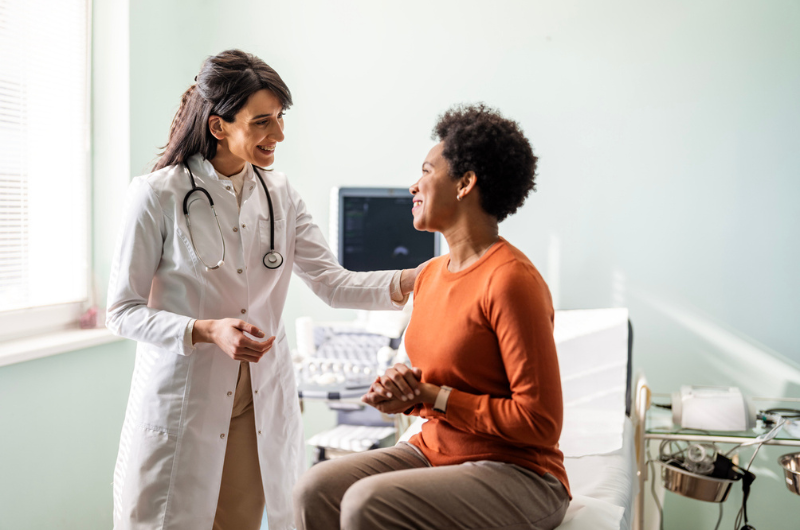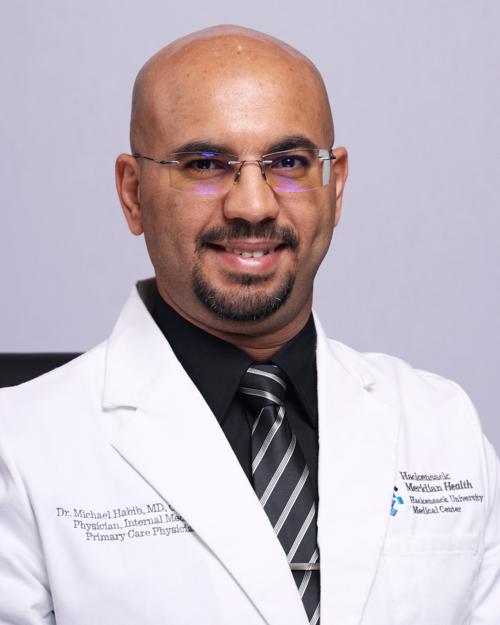5 Reasons You Need a Primary Care Physician

April 30, 2025
Picture this: It’s a typical day and you’re feeling pretty good, a little tired, but nothing serious. You haven’t seen a doctor in years, figuring you’re young and healthy.
Then, during a routine check-up (that you almost skipped,) your doctor discovers something unexpected – early signs of a serious condition. Because it was caught early, treatment is much easier and more effective. This is the power of having a primary care physician (PCP).
“With preventive care, you can catch health problems at an early stage,” says Michael Habib, M.D., a primary care doctor in North Bergen, New Jersey. “Early detection of diseases underscores the importance of regular checkups and screenings.”
There are 100 million Americans without primary care physicians. If you’re one of them, here are some compelling reasons to find one:
1. Prevent Serious Illness with Early Detection
You might not recognize the early signs of serious conditions like diabetes, colorectal cancer or heart disease. A PCP provides regular checkups and screenings, catching potential problems before they become serious.
Primary care doctors diagnose and treat many chronic conditions, including:
- High blood pressure
- High cholesterol
- Diabetes
- Heart disease
Primary care doctors also recommend screening tests, which look for problems before symptoms arise. They base their recommendations on a patient’s age or family history.
Common screenings that primary care doctors recommend include a:
- Mammogram to find breast cancer
- Colonoscopy to find colorectal cancer
- Prostate-specific antigen test to find prostate cancer
- Bone density scan to find osteoporosis
- Lung cancer CT scan to find lung cancer in current and former smokers
"Early detection isn't just about finding disease; it's also about preventing it from progressing. It allows us to intervene sooner, often before serious damage occurs, and dramatically improve a patient's health outcomes,” Dr. Habib adds.
2. Support Your Mental Well-Being
Your PCP isn't just for physical health. They can also be a valuable resource for mental health concerns. They can screen for conditions like:
- Depression: Feeling persistent sadness, loss of interest in activities or changes in sleep or appetite.
- Anxiety: Experiencing excessive worry, nervousness or difficulty relaxing.
- Stress: Feeling overwhelmed, irritable or having trouble coping with daily pressures.
Your PCP can screen for these conditions, provide initial counseling and support, and connect you with mental health resources or specialists if needed. Talking to your PCP about your mental health is just as important as discussing your physical health.
3. Understand Your Genetic Risks and Take Control of Your Health
Sometimes, cancer risk runs in families, because of inherited gene mutations.
Primary care doctors get to know their patients and provide personalized care. Sometimes, this means that they send patients for genetic counseling.
“Every patient has their own risk factors, genetics and family history,” Dr. Habib says. “Primary care doctors can guide patients through these risk factors, based on their history.”
A cancer risk assessment might help you get diagnosed early, while it’s treatable. You may also be able to avoid getting cancer, with medication or lifestyle changes.
4. Get Access to Specialists When You Need Them
Some patients need referrals from primary care providers to see specialists, but any patient will benefit from seeing a primary care doctor first.
Many times, specialists can’t see a new patient for several months. Your primary care doctor can surely step in to help speed the process.
“If it’s urgent, I call the specialist,” Dr. Habib says. “I say, ‘Please accommodate this patient as soon as possible.’”
5. Build a Long-Term Relationship with Your Health Care Advocate
Primary care doctors and patients develop relationships over time. Your doctor gets to know your health history and lifestyle habits. You should become comfortable discussing your health concerns.
“The patient might feel embarrassed to talk to anybody else about weight problems or sexual behavior,” Dr. Habib says. “But the long-term relationship and trust between patient and doctor helps.”
Next Steps & Resources:
- Meet our source: Michael Habib, M.D.
- To make an appointment with Dr. Habib or a doctor near you, call 800-822-8905 or visit our website.
The material provided through HealthU is intended to be used as general information only and should not replace the advice of your physician. Always consult your physician for individual care.







